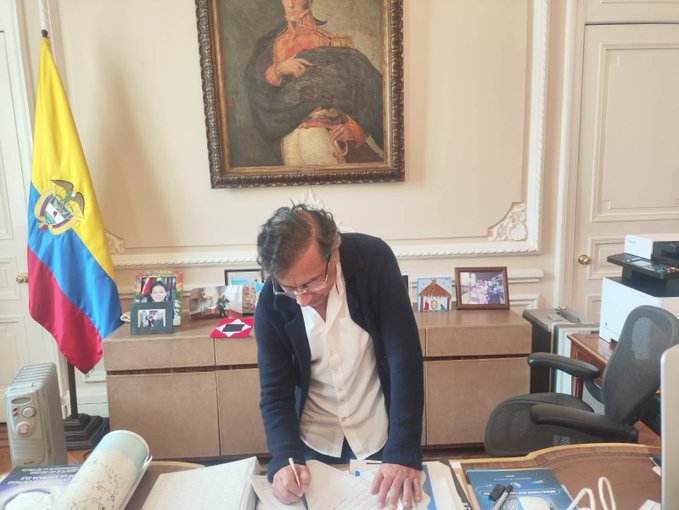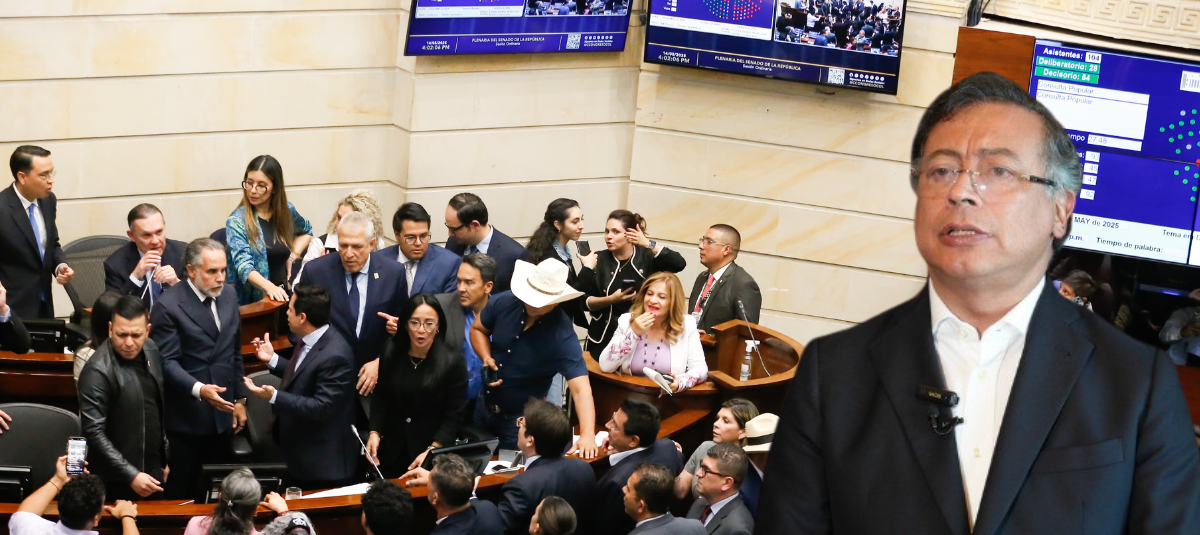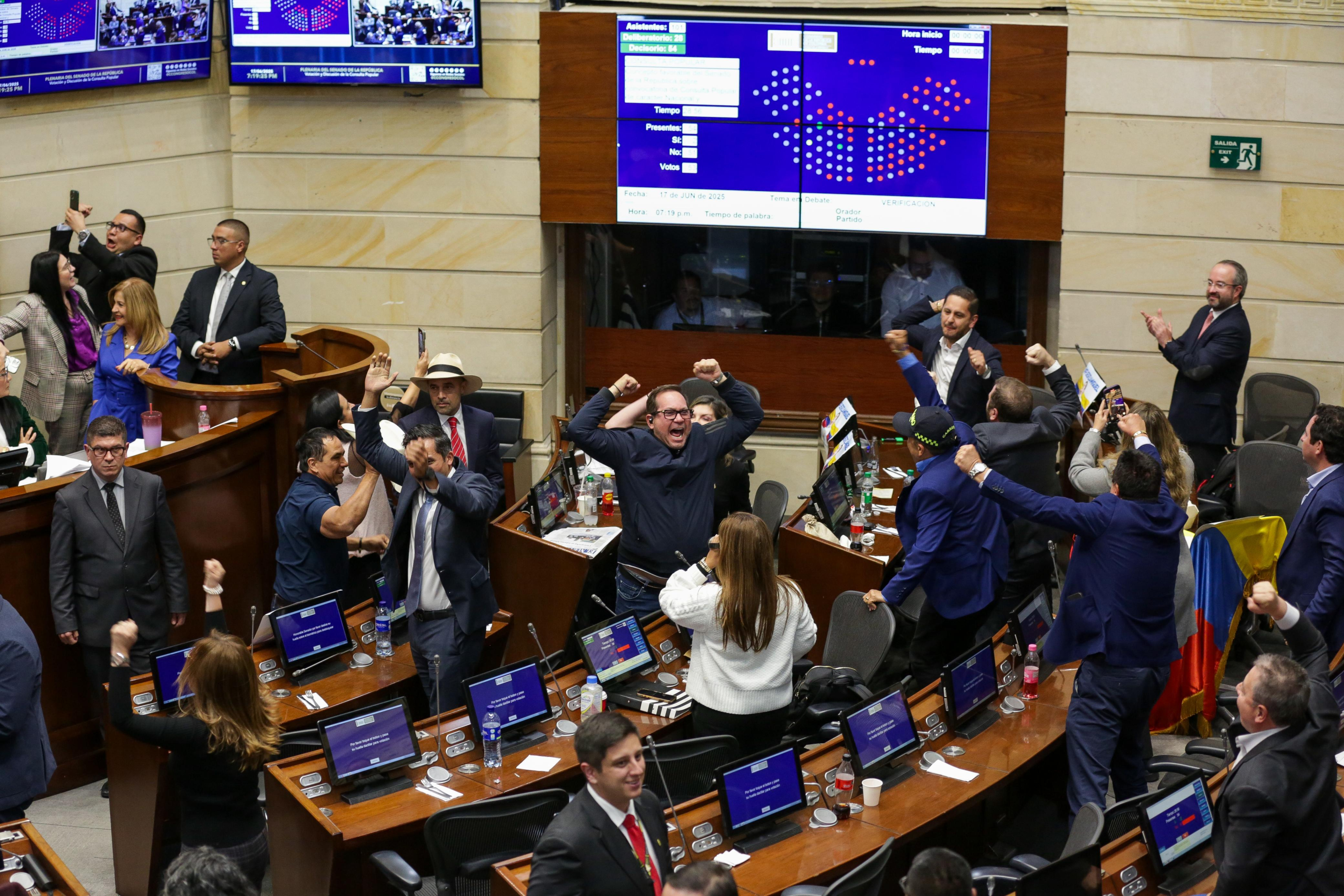Efraín Cepeda responds to the Supreme Court's inquiry into the referendum vote: "I'm prepared."

The Supreme Court's Special Investigation Chamber has opened a preliminary investigation against Senate President Efraín Cepeda for alleged irregularities in the referendum vote presented by President Gustavo Petro's government, which was suspended by order of the Council of State.
The head of the corporation spoke out through his X account about the high court's investigation and assured that he is prepared to present evidence.
"Absolute transparency in the Senate. I am prepared to present to the Supreme Court videos, audio recordings, and documents that demonstrate the truth about the plenary session, supporting the impeccable performance of the Board of Directors and the Secretary General, our notary," Cepeda said.

President Gustavo Petro signing the decree calling for the referendum. Photo: @petrogustavo
He added: " We will not allow lies to prevail! We are requesting an investigation into those who not only obstructed the Secretary General's work but also attempted to steal official documents. This is a great opportunity for justice to shine and for Colombians to understand what happened in that session of Congress."
What is known about the Court's investigation EL TIEMPO learned that the investigation is in the office of Judge César Reyes, who has already ordered the collection of evidence to determine whether there is grounds to formally link the Senate president to a criminal investigation.

Moments after the referendum collapsed. Photo: Néstor Gómez - El Tiempo / Presidency
The referendum, voted on on May 14, was not approved: 49 votes were against and 47 were yes, resulting in the Senate plenary not issuing a favorable opinion to convene it. Such an opinion is an essential requirement, according to the Constitution. However, President Petro signed a decree to convene the referendum, which was temporarily halted by one of the multiple demands that reached the Council of State.
Since the day of the vote on the citizen participation mechanism, sectors close to the Executive branch have claimed that there was "fraud" during the voting process and accused the secretary general, Diego Alejandro González, of having changed a vote.
Throughout this case, Efraín Cepeda has insisted that he acted within the law, that the May vote was in accordance with the rules, and that the Executive branch erred in calling a referendum without the approval of the legislative body. On the other hand, the government claims that there was an allegedly irregular closing of the polls and an adjournment of the May 14 session, which prevented the referendum from proceeding.

Celebration of the Senate's rejection of the referendum 2.0. Photo: César Melgarejo. EL TIEMPO
Therefore, to determine whether or not the Conservative senator committed any crime, Judge César Reyes decided to open an investigation, following a complaint filed by citizen Jhon Jairo Turizo of Sincelejo, Sucre.
The government presented a new version of the referendum, known as Referendum 2.0, which included not only questions related to labor reform but also to health reform. This proposal was also defeated in the Senate.
Maria Alejandra Gonzalez Duarte
eltiempo





